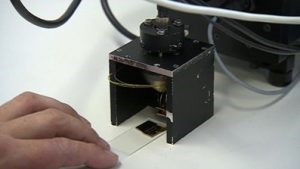Breakthrough blood test to detect brain injury
By Alicia Cannon.
I was intrigued by recent reports that a new blood test can detect serious brain injuries. Brain injury is the leading cause of death and disability in young people. To diagnose brain injuries, scans are performed but this can cause delay and lead to patients’ conditions deteriorating and in the worst case scenario fatalities.
There are several different causes of brain injuries which can include:
- stroke
- tumour
- infection
- impact injury to the head such as in a traffic accident, a workplace accident, an assault, a fall or a sports injury; and
- lack of oxygen (hypoxia)
Current diagnosis of brain injuries
Often people who suffer brain injuries might appear to be fine; they can be acting normally despite being seriously injured. A brain injury is not blatantly obvious in the same way as a physical injury, such as a broken arm or leg.
Brain injuries can be diagnosed by computerised tomography (‘CT’) scans, Magnetic Resonance Imaging (‘MRI’) scans and through detecting clinical symptoms.
Symptoms of a brain injury vary from person to person and they might include:
Physical symptoms
- Loss of consciousness from several minutes to hours
- Persistent headache or headache that worsens
- Repeated vomiting or nausea
- Convulsions or seizures
- Weakness or numbness in fingers and toes
- Loss of coordination
Cognitive or mental symptoms
- Profound confusion
- Agitation, combativeness or other unusual behavior
- Slurred speech
These symptoms can sometimes be missed by doctors. Symptoms of brain injury are also hard to pick up in toddlers and babies, who are unable to articulate their symptoms in the same way as adults.
It can be years before symptoms of a brain injury are diagnosed. Sometimes brain injuries are not obvious until children start school and a learning disability is suspected and diagnosed, such as attention deficit hyper disorder (ADHD) or attention deficit disorder (ADD).[1]
CT scans reveal whether a head injury has caused bleeding in the brain but do not indicate whether the brain cells themselves have been injured. Damage to the brain cells can happen without bleeding.
What the test could achieve
This blood test for brain injury developed by researchers in Birmingham could:
- save lives by detecting whether someone needs neurosurgery;
- minimise the number of CT scans being done, which is particularly beneficial to children who are especially sensitive to radiation;
- improve lives by implementing treatment and rehabilitation faster, perhaps by advising whether someone needs to take time off school and deciding whether they need to follow up with a neurologist; and
- save money by avoiding carrying out expensive scans on people who do not have brain injuries
How does the test work?
A small drop of blood is placed on a silicon and gold chip and then it is placed in a special detector for analysis. The test looks for tiny amounts of chemicals that are produced when the brain is injured.
Discovered by the University of Birmingham and the Queen Elizabeth Hospital, researchers have carried out the tests using blood from real patients. They confirm that the test accurately detects those patients with injury to their brain and those who are not injured.

The researchers aim to reduce its size by half so in the future it could be carried by an ambulance crew and used at the scene of an accident. At the moment there is no equipment for paramedics thatcan determine whether someone has had a serious brain injury so this is a huge advancement for emergency services and I look forward to seeing it develop and be implemented.
Following further development it is hoped that the detector can be reduced to the size of a briefcase. It would therefore be easy to keep at sports grounds or in army vehicles in combat.
A team from the University of Birmingham and the city’s Queen Elizabeth Hospital hope the detector could be on the market within three years.
